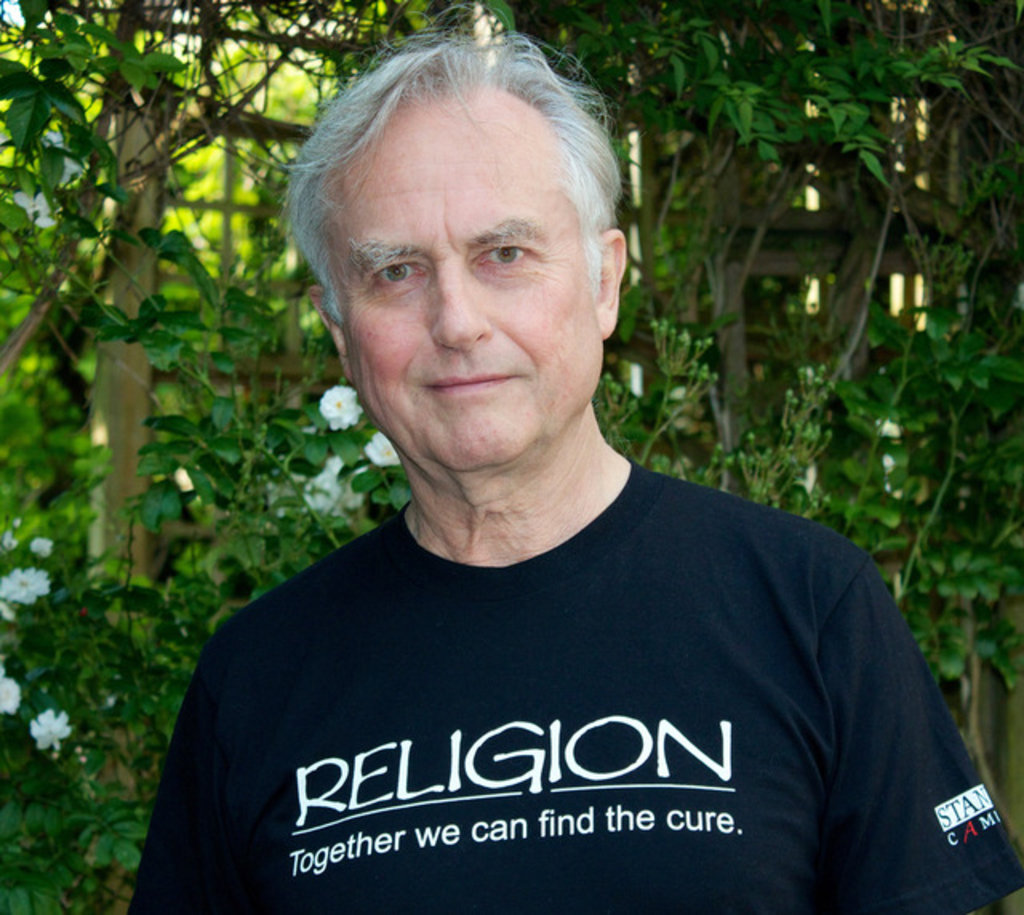Richard Dawkins
Richard Dawkins is an English ethologist, evolutionary biologist, and author. He wrote the 2006 best-selling book, The God Delusion. In that book, he made some pretty compelling arguments for atheism:

We’re All Atheists
In this argument, Dawkins is pointing out the obvious fact that we all look at historical religions with plenty of skepticism. It would be absurd to believe that Zeus and Thor really do exist, or that the gods of the ancient Egyptians are still out there wandering about. When a religious person stops to consider this, it will be a painful truth for them to realize that their religion is very much the same as those in the past. So it will logically follow that their religion is likely the same kind of desperation for supernatural control in the universe. These kinds of simple arguments are what made me seriously struggle to believe in the god of the bible. But the beauty of it is that this argument can easily be applied to all religions.
Indoctrination
Dawkins challenges religious people to train their kids in critical thinking instead of in religious tradition. In this way, the child will choose whether or not religion is true and real, rather than being constantly told by trusted friends and family that it is. This is a challenge to religious people because religion continues almost entirely because of the indoctrination of children. Children are easy targets because they trust that the adults around them have life figured out and are vastly more intelligent than them. Dawkins is pointing out that if we train children to think critically rather than indoctrinate them, we’ll have an atheist society in a single generation.
Friedrich Nietzsche
Friedrich Wilhelm Nietzsche was a German philosopher, cultural critic, poet, philologist, and Latin and Greek scholar whose work has exerted a profound influence on Western philosophy and modern intellectual history.
Atheism is Instinctual
Atheism is completely natural. A primary tool of critical thought is to remember that extraordinary claims require extraordinary evidence. When someone tells you that they saw a velociraptor in the forest, you’re going to need evidence to believe them. Their claim is pretty extraordinary and so you would require some outstanding evidence for their claim. Religion is treated the exact same way. If a Muslim man tries to convert you to Islam, you’re going to need some evidence for his claims about the truth of his religion. That’s an important point about religion, that the burden of proof is on them to prove their fanciful ideas. The only reason people are convinced so easily about the madness of religion is that their parents or friends tell them about it, and they trust those people. I believed in Christianity for a long time, and when I had the strongest doubts, I would remember that my parents, friends, fellow church-goers, and extended family wouldn’t lie to me about something so important. Atheism is instinctual, but so is trust.
Religion is Desperation
I’ve also noticed this painful truth about religion. It’s made up of people who are intensely afraid of reality, and of the truth of the human condition. Religion comes from our hatred for our loathsome existence and our deep desire to deny the actuality of death and future loss. However, if we can be united in our dissociation from real life, we can be happy. We can call this dissociation “faith” and together we can be free from the horror of existence. Religion allows people to forget that we are on a rock zipping through the cosmic abyss at hundreds of kilometers per second and that eventually our sun won’t even exist, our planet will not even be a memory, and this truth is something that people desperately scurry away and hide from. The reality is all we have is each other, connection, and this life, anything more is hopeful delusions.
Epicurus
Epicurus was an ancient Greek philosopher as well as the founder of the school of philosophy called Epicureanism. Only a few fragments and letters of Epicurus’s 300 written works remain.
The Problem of Evil
Apologists and theologists alike have been grappling with the problem of evil for nearly a thousand years, and I’ll tell you why. It’s because it’s a paradox that cannot be solved. Paradoxes such as the problem of evil clearly show us that the concept of god is contradictory in and of itself and therefore is impossible. Religious people will say that god is outside of space-time and doesn’t have to follow the natural laws of reality and so he can deny logic. The only problem with that is logic is not a natural law of space and time, it’s a law of reasoning that applies to concepts, and that’s why the problem of evil remains a common source of doubt for religious people. Logic can’t be pushed to the side. Religious people will have to explain why god is in contradiction with his own attributes. Because he is either impotent, malevolent, apathetic to the suffering of his creatures (evil), or he doesn’t exist. Applying Occam’s razor, it would be reasonable to say that he doesn’t exist.
https://owlcation.com/humanities/Top-Atheists-Their-Best-Arguments
Earth is a closed system & there does exist a Creator. Scripture was never intended to be about a religion but about a peoples(!) You clearly haven’t done nearly sufficient research. But, I’ll leave you with something valuable:
https://archive.org/details/macro-climate-change
https://archive.org/details/plasma-moon